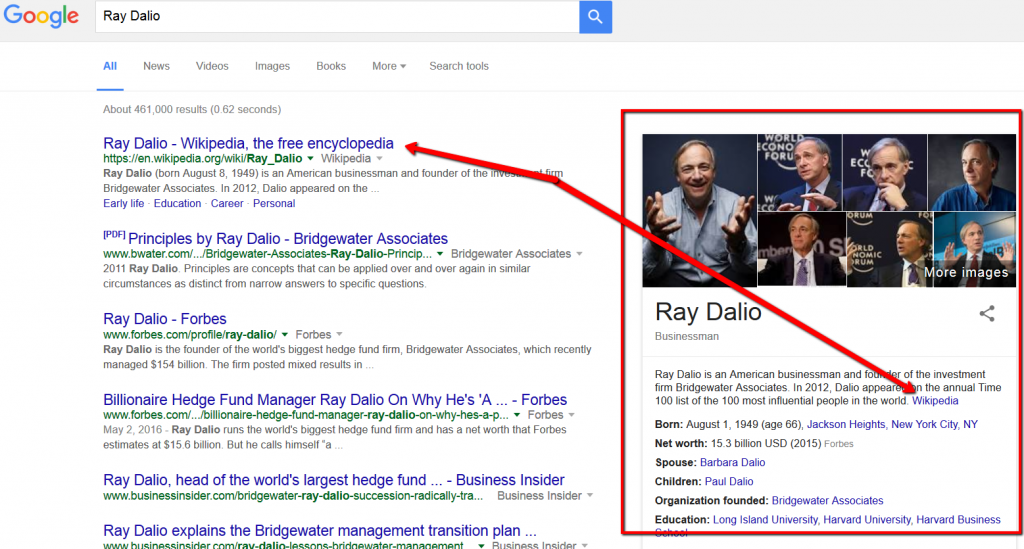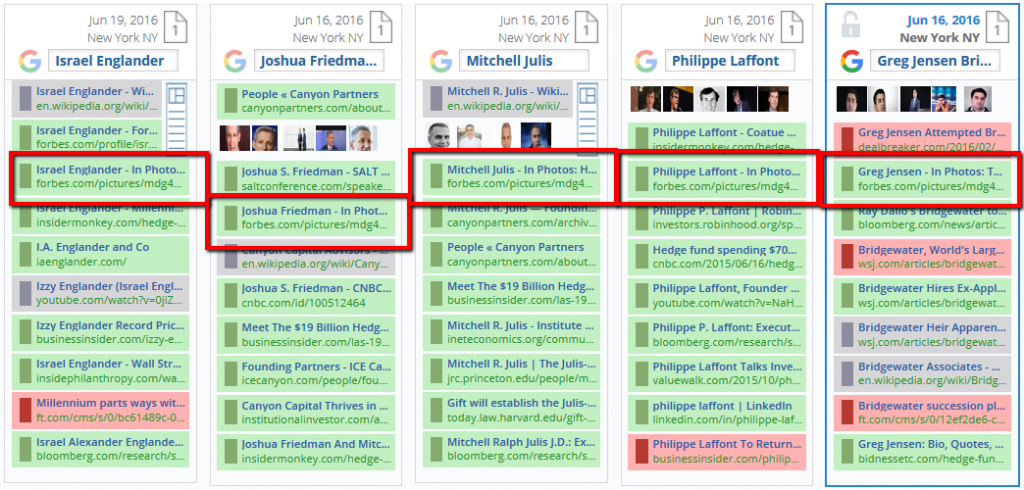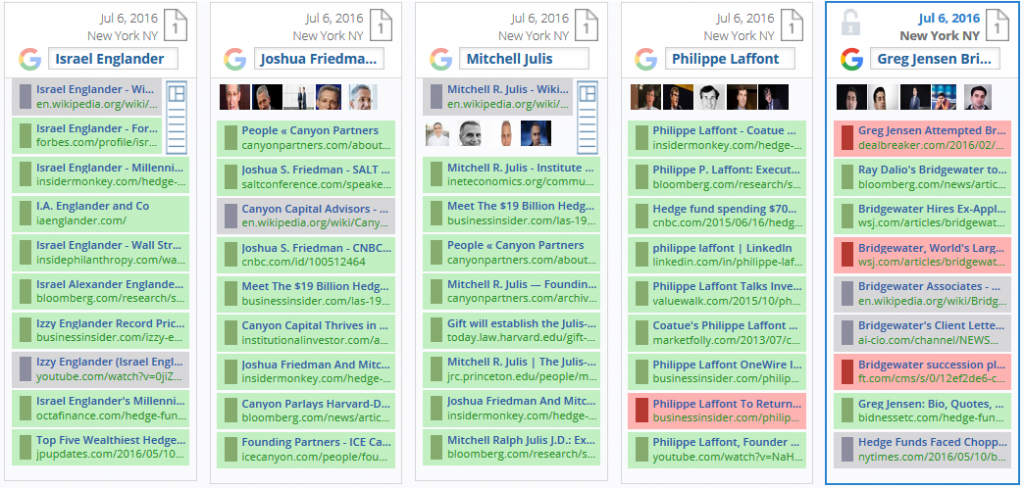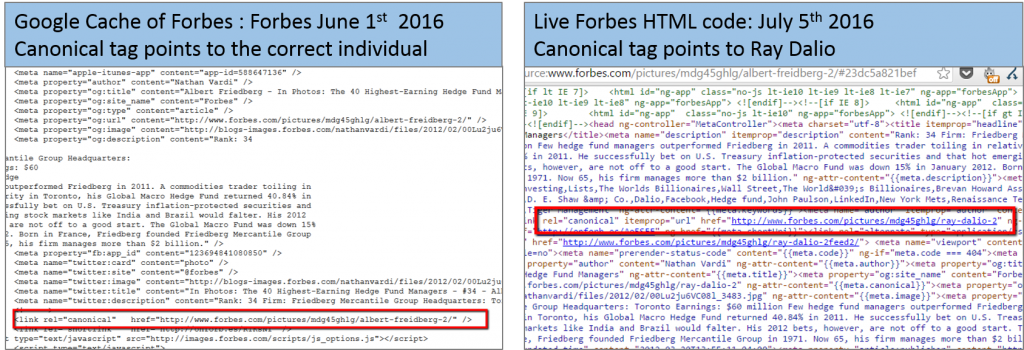How One Small Technical Error by Forbes Changed the Reputation of Fortune 500 CEOs… Overnight
New trends in Google search results are typically attributed to changes in Google’s algorithm. Search engines make frequent changes that affect search results; many of which are not known to most users. For example, over the past several months Google reintroduced the ‘Twitter box’ causing Twitter to feature prominently in search results for many brands and individuals. Wikipedia has continued to maintain top positions in search, and is the primary source of information for Google’s Knowledge Panel. Google has experimented with the inclusion of an in-depth articles section, both removing and then reintroducing it. But sometimes, significant changes in Google search results aren’t algorithmic; rather they are the result of outside forces.
At Five Blocks, we track the reputation of thousands of brands and executives and our system alerts us to major changes impacting a large segment of Fortune 500 CEOs. Forbes pages featuring a gallery of relevant images, suddenly disappeared for many of the executives, practically overnight.
All the Forbes image pages seemed to have disappeared.
On June 16th and 19th 2016
On July 5th 2016
All the Forbes image pages seemed to have disappeared.
Initially, we assumed this was an algorithmic change in Google, but when we followed the tracks, it was clear that a human error by a Forbes staff member had resulted in a ripple effect, affecting the search results of many individuals.
What Happened?
Pages on Forbes.com, like many other sites, include code known as a canonical tag. The purpose of this tag is to send a signal to Google that the page you are on is the original content. Oftentimes the same content exists on multiple pages. Thus it is useful to direct Google to the original version.
On or just before June 25th, the URL that the tag began pointing to was the first individual on the list.
In one instance all the individuals on this list had a canonical tag pointing to Ray Dalio:
In another instance, the canonical tag began pointing to Larry Page (of all people!):
Luckily the mistake looks easy to correct and is not likely to have a long-term impact. This example serves as a reminder of the pivotal role that specific prominent publications play in the digital reputations of many executives.
Many factors impact digital reputation. Google’s algorithm certainly plays a central role, but so does launching and maintaining owned sites and content, interacting in social media, and engaging with the press to get the coverage your brand needs. At the same time, it is worth remembering that like many things in our lives, digital reputation is vulnerable to both human and technological error. Tracking your online reputation on an ongoing basis can help you take quick action when a concerning situation does arise.
And who knows, sometimes, writing a blog post and tweeting it out could be what fixes the problem.
Forbes could not be reached at the time of this publication for comment.





